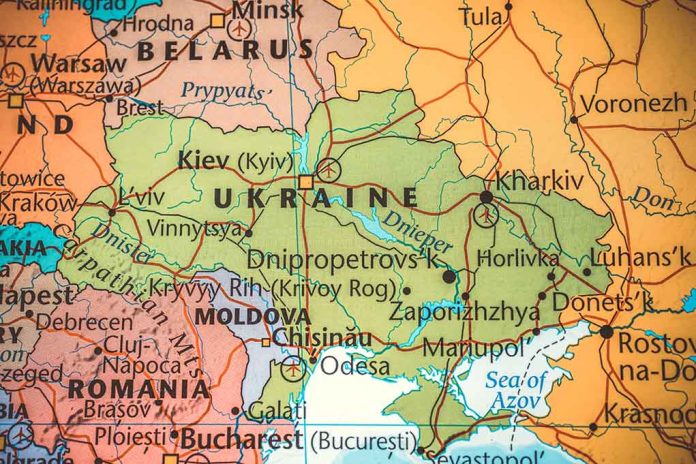
Russia’s surprise ceasefire announcement for Victory Day comes amid ongoing tensions and offers an opportunity for peace talks.
Key Takeaways
- Russia declared a three-day ceasefire in Ukraine from May 8-10 for Victory Day.
- The ceasefire intends to celebrate the defeat of Nazi Germany as a humanitarian gesture.
- Ukraine has not immediately responded, maintaining its 30-day ceasefire commitment.
- Russia warns of a strong response if Ukraine violates the ceasefire.
- Peace talks remain a priority despite skepticism from President Trump and European leaders.
Russia’s Ceasefire Declaration
To commemorate Victory Day, Russia has announced a ceasefire in Ukraine from May 8-10. This gesture, described as humanitarian, attempts to honor the defeat of Nazi Germany at the end of World War II. The announcement comes amidst intensifying conflict and is seen as a potential catalyst for ongoing peace negotiations between world leaders.
Despite Russia’s gesture, Ukraine remains committed to its previously proposed 30-day ceasefire agreement mediated by the U.S. President Donald Trump has been actively involved in discussions, underscoring the international community’s efforts to find a lasting resolution. Ukrainian officials are approached with caution, considering previous violations by Russia even during similar ceasefires in the past.
International Reactions and Concerns
Many Western leaders express skepticism about Russia’s true intentions, suspecting the ceasefire might be a ploy to strategize further territorial gains. European officials have accused Russia of stalling peace talks, fearing ulterior motives to reclaim Ukrainian land. The U.S., alongside Europe, remains a strong ally to Ukraine, continuing aid and support against Russian opposition.
“Russia believes that the Ukrainian side should follow this example,” the Kremlin said in a statement.
Amidst this, U.S. Secretary of State Marco Rubio described the situation as “very critical,” emphasizing the need to determine future involvement in the ongoing conflict. His remarks underline the high stakes surrounding the ceasefire and the potential consequences of its success or failure.
Zelensky says he’s ready — as Ukraine was a month ago when US proposed full armistice — to extend ceasefire. But so far Putin has claimed to have ordered one while his Russian army continues attacks on the frontline.
“If a complete ceasefire truly takes hold, Ukraine proposes… https://t.co/x7l43PDhEl
— Christopher Miller (@ChristopherJM) April 19, 2025
Peace Negotiations and Military Tensions
Russia has articulated its willingness to engage in peace talks sans any preconditions. Yet, skepticism persists among Ukrainian and Western figures. Prior to the ceasefire announcement, both nations were involved in long-range strikes, indicating the entrenched nature of the conflict.
The apparent ceasefire reflects Vladimir Putin’s attempt to reengage diplomatically, possibly appeasing U.S. President Trump. However, Ukrainian resistance to territorial compromise and continued Western military support underscores the complexity of achieving peace.
The ceasefire’s outcome remains uncertain, but highlights the pressing need for all parties to engage constructively. As the international community watches closely, any genuine peace efforts will require overcoming past grievances and fostering trust, a challenging endeavor amidst ongoing war dynamics.





